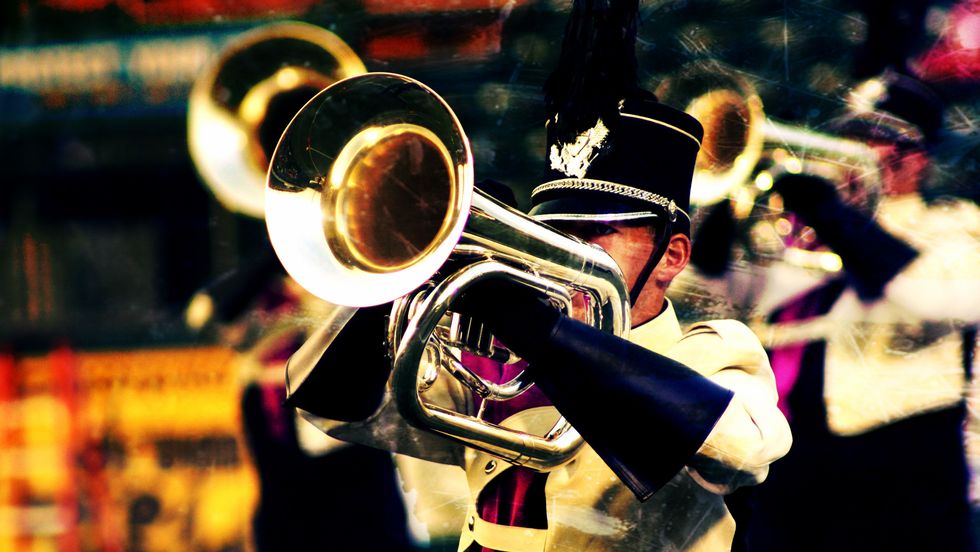One of my biggest inspirations for going into band was seeing the Atlanta Symphony in the fifth grade. The extent of my music experience at the time was playing the recorder, but upon hearing and also seeing the Symphony I knew my destiny then and there.
The shiny brass instruments were calling my name.
The trombone was, by far, the most unique instrument I could have chosen. Its play style is so much different than any other. I regretted nothing coming up through middle school.
Then eighth grade night rolled around.
Eighth grade night is where local high schools invite kids from their feeder middle schools to come and experience a home game from the marching band's perspective. The high school ensures to make it one of the best experiences to draw in middle schoolers into the appeal of marching.
It was indeed fun, but I was forlorn to see no high schoolers playing the trombone.
We were put with the baritones: the marching instrument that trombones are made to play. They were nice and all, but it was scary to think that they were going to have us march a different instrument.
I got to march trombone by the skin of my teeth. Our high school had switched directors, and our new director was more favorable towards marching trombone than the hardline stance of the director before him.
He would have stuck with the previous stance had we not had a prospective fifteen marchers hoping to join the baritone section and only eight functional instruments. At the time, I was just grateful to not have to switch over.
I almost faced the sole-baritone reality. I've seen this reality play out in one of our local high schools. I've also led our trombone section with the ever-present thought that if we were to lose enough in numbers, we would switch back.
Maintaining a trombone section is necessary to a diverse marching sound despite the logistical drawbacks of marching the trombone.
Some of the obvious drawbacks that bands hope to avoid by eliminating the trombone section revolve entirely around our slides.
Playing through a slide means that horn angles when marching are a nightmare. It's infinitely more obvious when a trombone is below angle than when a baritone is due to our length. This is increased when playing in further positions.
Tuning and intonation is also difficult when on a slide. When in front of a tuner, it's easier because we can just fine tune and adjust manually. When marching, however, it's a lot harder to pay mind to it when also trying to march with proper technique, be in the form, watch the drum majors and listen to balance.
A minor preference for the baritone might be that the vast majority of marching baritones are already silver rather than lacquer, and so it would hence be easier to have all the brass instruments be silver.
Despite the perceived drawbacks to marching trombone, we're a necessary component to the marching band.
Trombones can provide a punch that cannot be so easily achieved on a baritone. I say this part from experience, as once you learn to balance your breathing and marching (harder than it sounds), you too can play to the true potential of the Ever Too Loud Trombones.
Smears! Smears cannot be done so well on any other instrument. By far, it's the best aspect of playing trombone if done loud and proud.
Trombones are needed in the marching band above all else because of the unique sound we provide.
While baritones and trombones are mostly equivalent in our range and uses, trombones are often written as a higher part when marching because we can provide a better sound in the higher range.
We usually aim to have a darker, more rounded sound when playing and balancing the marching band. A brighter tone is necessary, however, to combat those with dark tone. We have the bass instruments in the sousaphones and baritones, but it can be matched with the brighter colors provided by the trumpets and trombones.
My message to band directors across the nation is to keep your spread of marching instruments varied by maintaining your trombone section. Don't fall into the trap of wanting the logistically easier way out and hence sacrifice your instrumentation integrity.






 The minimum wage is not a living wage.
StableDiffusion
The minimum wage is not a living wage.
StableDiffusion
 influential nations
StableDiffusion
influential nations
StableDiffusion












